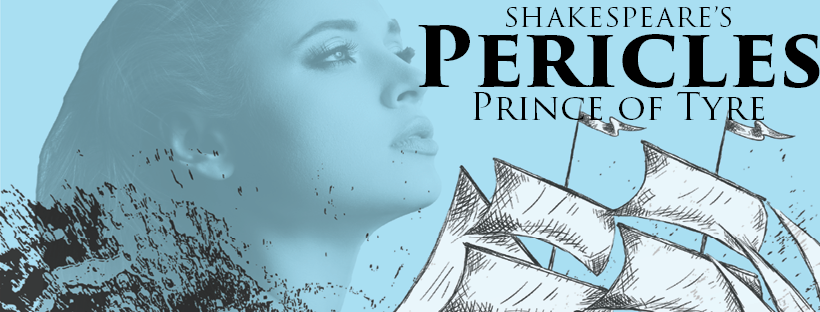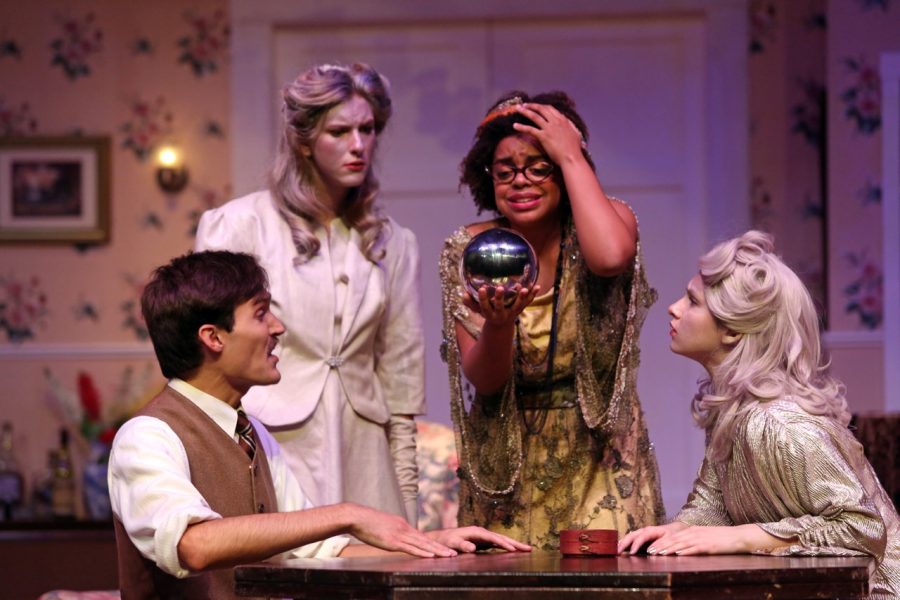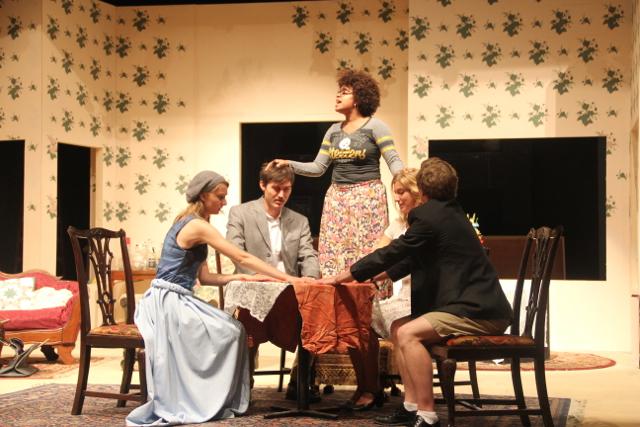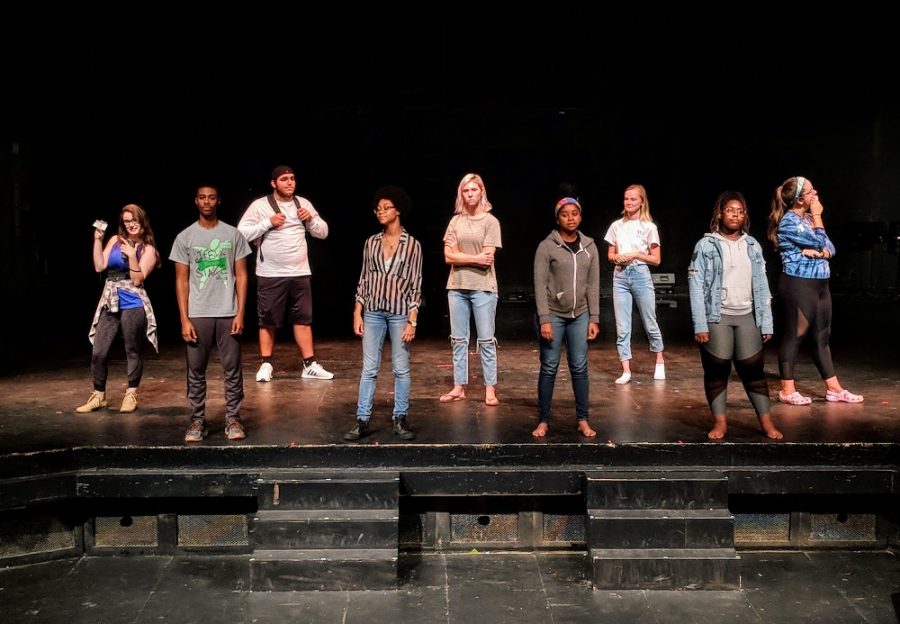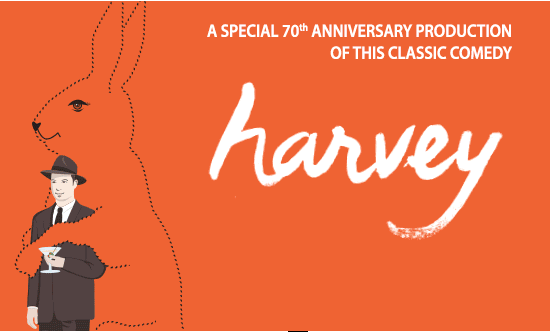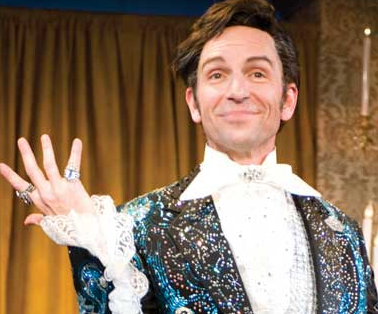 If you haven’t noticed by now, the university is in the midst of the Centennial Celebration of Women at Marquette. Of many entertaining ways to participate in the festivities, few are better than watching the MU production of “Censored on Final Approach,” opening today at the Helfaer Theatre.
If you haven’t noticed by now, the university is in the midst of the Centennial Celebration of Women at Marquette. Of many entertaining ways to participate in the festivities, few are better than watching the MU production of “Censored on Final Approach,” opening today at the Helfaer Theatre.
The play, written and directed by a faculty member, tells the story of the World War II Women Airforce Service Pilots, or WASPs, the first women pilots to serve the United States during wartime. The four main women of the play direct tow-target training missions at Camp Davis, N.C., from 1943 to 1945.
Though the WASPs were voluntary pilots, they were denied military status. These women were considered civilians during their service. In fact, they did not receive official militarization until 1977. President Obama recently awarded these women long-overdue Congressional Medals of Honor on July 1.
Marquette professor Phylis Ravel is both the playwright and the director of this production. Ravel said she wrote the play in the spring and summer of 1993. Since then, the play has been produced professionally in New York, Kentucky and Germany, as well as by five different universities around the country.
Even more impressive, the play has also been selected for reading in Women’s Studies Programs in various universities, and was the runner-up for the Jane Chambers award for feminist theater by female playwrights.
“The story of the WWII Women Pilots is a part of U.S. military history that has surfaced in the last decade,” Ravel said. “These stories need to be told for future generations.”
The chief importance of this history lies in the WASPs’ confrontation of gender barriers. They did not challenge societal norms out of radicalism, but rather, to serve their country and pursue individual passions. The play’s major conflict arises from the male characters’ inability to accept women as capable equals, and the concurrent determination of the WASPs to attain the basic respect due all human beings.
Major John Stephenson, played by Matt Wickey, junior in the College of Communication, demonstrates this lack of acceptance multiple times throughout the play.
“As far as I’m concerned, you are powder-puff pilots and you do not belong here,” Stephenson says to the women.
Wickey said Stephenson is a challenging but cool role to play.
“The men on Fort Davis do not necessarily dislike the women who have come,” Wickey said. “Many men were just afraid of the change the women would bring.”
From the opening of the production, which takes place 10 years after their service, the remaining WASPs are still grieving the loss of their female compatriots who died during their mission.
The audience quickly learns that the facts pertaining to these deaths were not only concealed from the WASPs and the public, but the reports of these deaths were censored.
Reports attributed the deaths to “pilot error,” but sabotage by male compatriots was the likely cause of death. The WASPs were instructed to fly inadequate planes, which were negligently inspected and some of which were found to have water in the carburetors, rags and sugar in the tanks and faulty escape hatches.
This cover-up is the direct result of betrayal by supposed allies, and is perpetuated by superior officers. Through this dilemma emerges another uniquely human conflict: should truth be pursued at all costs, or are there greater goods that can be achieved through deception?
In the case of these women, exposing the truth behind their friends’ deaths would ensure their demise as pilots, and destroy the progress they have achieved for their sex.
The play asks many provocative questions, the most timeless of which considers whether the individual or the collective interest is more important. Should these women insist on uncovering the truth behind their friends’ deaths, or should they remain quiet, for the sake of preserving what progress they have made?
The production begins with music from the period, interspersed with speeches from various politicians detailing the development of WWII.
Everything in the production is remarkably cohesive and indicative of the play’s internal conflicts. Both the set design and the blocking are symmetrical, orderly and simplistic, conveying a militaristic ambiance and suggesting a time of greater discipline and effort. Stephen Hudson-Mairet, chair of the Department of Performing Arts, designed scenery while Professor Debra Krajec designed costumes.
The leader of the WASPs, Jacqueline Cochran, encouraged the women to maintain feminine appearances — even in combat. Cochran is played by Gwen Zupan, senior in the College of Communication.
“You do not leave that plane until you have combed your hair and touched up your make up,” Cochran says.
Zupan said this play has provided much insight into the real attitudes towards women during the 1940s, which mainly held that women belong at home.
“I really want to convey that these women knew what they were getting themselves into and everything Jackie did for them was in their best interest,” Zupan said.
The injustice that the WASPs repeatedly endure evokes a frustration with which anyone can sympathize. This element of the play makes it particularly potent for college students, who must enter the “real world,” and develop an entirely new awareness, which often results in disillusionment.
Elizabeth Langley, played by Kelsey Lehn, sophomore in the College of Communication, insists her fellow WASPs must be patient and wait for social change to occur. The other women are understandably outraged that they must wait for society to adopt a more just way of thinking.
Though constantly harassed and belittled by male superior officers, the WASPs remain bravely resilient throughout the production.
Mary O’Connor, played by Jennifer Mitchell, junior in the College of Communications, demonstrates this defiance to Major Stephenson.
“Most men are here because they have to be, we are here because we want to be,” O’Connor says.
Alexandra Bonesho, sophomore in the College of Communication, plays Gerry Hansen, one of the four women pilots. Bonesho said the cast flew airplanes at Timmerman Airport in Milwaukee and met the actual WASPs in preparation for the play.
“This experience makes me realize the strength and determination of these women,” Bonesho said. “The production reveals the prevalent injustice and criticism women faced during WWII despite their efforts to support their country.”
Wickey said the cast also worked with ROTC cadets, who taught the cast how to take commands and march properly for the show.
The production achieves a moving balance between facts of history, dramatic content, artistic direction and American identity.
“Censored on Final Approach” will play from Oct. 1 to 4 and Oct. 7 to 11 at the Helfaer Theatre. Tickets are $9 for students, $15 for university employees, alumni, and senior citizens and $19 for general seating. “Date night” is on Thursday, Oct. 8, when students can buy two tickets for $12.


